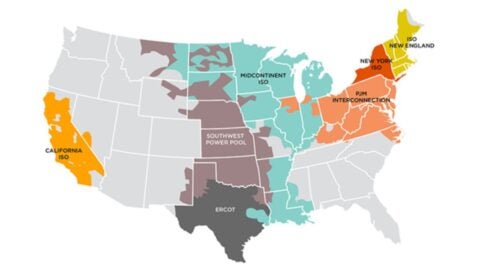That Scary Washington Post Article
 This post is by Sheryl Canter, an Online Writer and Editorial Manager at the Environmental Defense Fund.
This post is by Sheryl Canter, an Online Writer and Editorial Manager at the Environmental Defense Fund.
On Monday, the Washington Post reported that new studies say carbon output must be near zero to avert danger. They referred to two recent studies, one published in Geophysical Research Letters and one in the journal Global Biogeochemical Cycles.
I asked the scientists here at EDF about this. It turns out what’s missing from the Washington Post article is the time frame. Yes, we have to bring emissions to near zero, but it doesn’t have to be tomorrow. And moreover, this isn’t news!
From climate scientist James Wang:
These studies – particularly the first one – didn’t present any dramatically new findings. They mainly reinforce what we’ve known for quite some time: To avoid dangerous temperature thresholds and stabilize the climate, anthropogenic emissions must drop to near zero after about a century or so.
The key phrase here is "after about a century or so."
In case that still leaves you worried, take heart from something economist Nat Keohane wrote in his post "Time to Act, Not Despair":
Again and again, American entrepreneurs and investors have shown the ability to solve problems – when there is a market incentive for them to act. If the government will lead by capping carbon pollution, the primary cause of climate change, the market will respond with investment and innovation on a scale to solve this problem. Already, venture capitalists are pouring more than $300 million a month into new energy technologies. But it will take the certainty of a cap, an overall limit on carbon pollution, to unleash a sustained wave of investment and innovation.
…
With sufficient motivation, we can rise to the challenge and do what’s necessary. A cap on greenhouse gas emissions is the incentive we need to drive innovation and efficiency. We know what we need to do, and we have the ability to do it.













2 Comments
Yes, yes, yes and yes! I just got my renewal request from the Sierra Club, and I think I’m going to let it lapse. You guys get it and really make a difference, I’m concerned by people that think that markets are by themselves part of the problem, rather than part of the solution.
Someone on an investment discussion board nearly fell off their chair when I said that our emissions target should be zero, they really thought I hadn’t understood the question.
As soon as you recognize it then the problem and the many paths to action become clear. No more “emissions intensity” BS arguments that reward ‘good effort’ relative to economic growth. No more self-congratulation for a 10% increase in fuel economy. Total CO2 in the atmosphere has to come down – and for that at some point emissions must reach zero so natural processes can restore order. Fortunate that we understand this already, and it is (we suspect, and dearly hope) not already too late.
Nature doesn’t care how hard we are trying, or if we are suffering greatly, or if we feel guilty, or if we address the problem individually or collectively, or if we find a really cheap and easy way to fix emissions. Nature simply reads the cards we are dealing ourselves and tells us the outcome. Emissions go up – global warming. Emissions come way down and GHG levels come down – no more global warming.
Quentin
Thanks for your comment, Quentin. I couldn’t agree more!
Did you see Nat Keohane’s recent posts about the way economists look at global warming? I think you might find them interesting:
http://blogs.edf.org/climate411/2008/02/21/cbo_report_tax_vs_cap
http://blogs.edf.org/climate411/2008/03/04/cbo_followup/